Article author: Katie Biber, Alex Grieve Translator: Aiying Aiying
In June, Paradigm conducted its first unique poll of Republican voters to understand their views on cryptocurrencies. The results are very clear: Republicans are keen on financial freedom.
Republican candidates who support cryptocurrencies, such as Sam Brown, Dave McCormick and Bernie Moreno, have received strong support from voters. Republicans are firmly opposed to the centralized control views advocated by Warren-Gensler, including central bank digital currencies (CBDCs), the abolition of banking, and forcing all financial transactions to go through big banks.
In general, Republicans understand the appeal of cryptocurrencies and support congressional action to establish clear and predictable rules.
Point 1: Republicans who own cryptocurrencies are younger and more likely to be minorities than typical Republicans, which is exactly the votes Trump needs in this election.
The survey shows that 28% of Republicans currently own or have purchased cryptocurrencies, which is higher than the 19% national average of registered voters we found in March 2024.
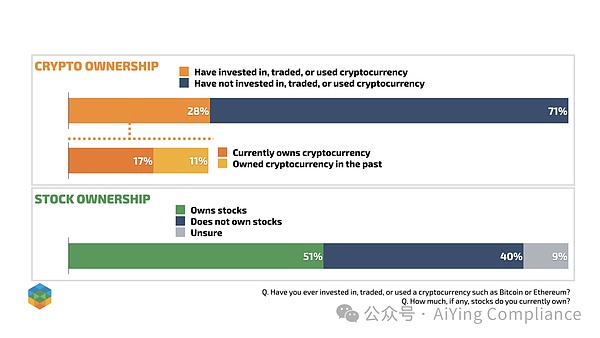
But deeper data information shows:
41% of non-white Republicans buy or own cryptocurrencies, which is only 11 percentage points lower than the 52% who speculate in stocks.
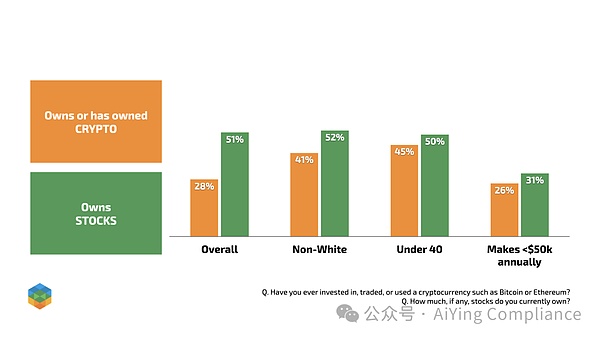
87% of Republicans who own cryptocurrency say they plan to buy more cryptocurrency in the next 12 months, while 13% of Republicans who currently do not own cryptocurrency say they may buy cryptocurrency for the first time in the next 12 months.
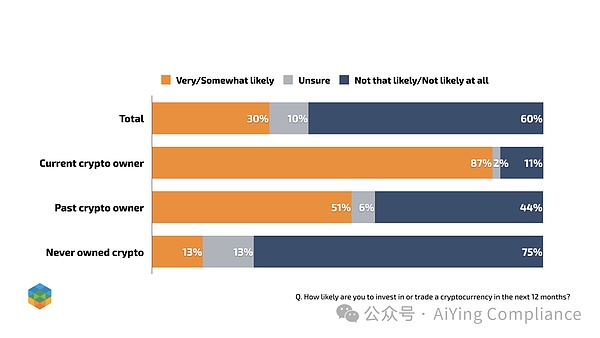
Cryptocurrency is most popular among Republicans under the age of 40. 45% have purchased or own cryptocurrency
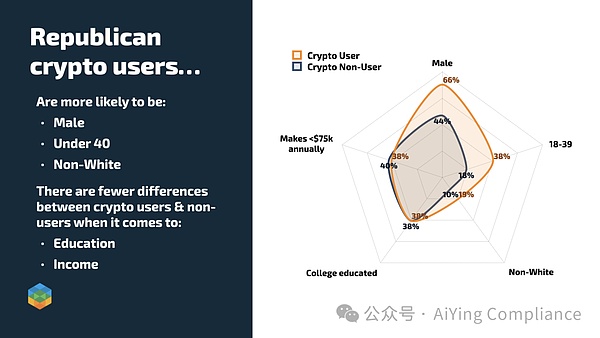
Many Republican cryptocurrency holders hold large amounts of cryptocurrency:
58% of Republican cryptocurrency holders hold more than $1,000 in cryptocurrency
40% of Republican cryptocurrency holders hold more than $5,000 in cryptocurrency
Point 2: Republicans distrust institutions and seek the freedom brought by cryptocurrencies
As the Biden administration and its allies continue to use banking regulations as a tool, Republican voters have fundamentally no trust in financial institutions.
67% of Republicans said they were dissatisfied with the current U.S. financial system
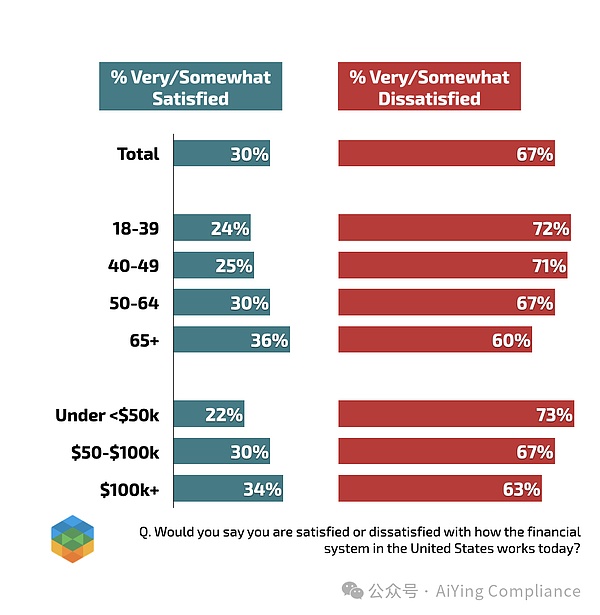
72% of Republican voters have some concerns that they may lose control of their wealth because of their political or religious views
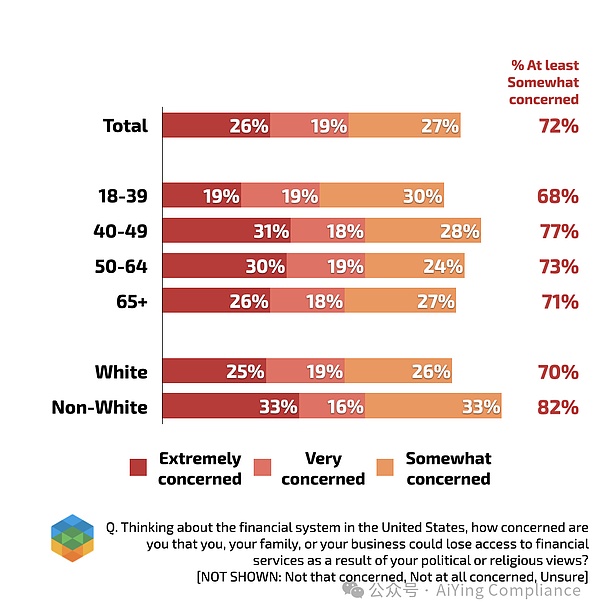
84% of Republicans believe that Americans should have the right to transfer money to others without going through a big bank
Point 3: Republicans want Congress to address the unclear regulation of cryptocurrency
94% of Republicans believe that their financial transactions should remain private.
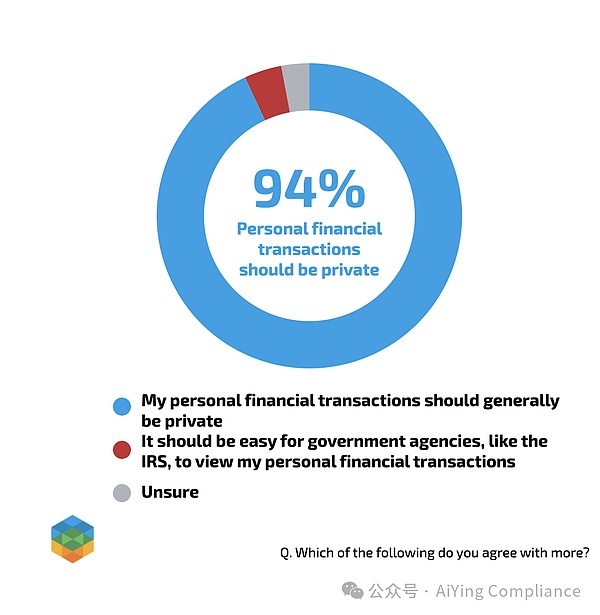
Among Republican voters who said they understood what a central bank digital currency (CBDC) is, 68% oppose the creation of such a currency
Point 5: Cryptocurrency helped convince Republicans who "never voted for Trump" to vote for him, and their popularity is higher
As Trump consolidates the support of Republican voters and prepares to participate in the general election, cryptocurrency has become an issue that helps him win over Republican base voters.
13% of Republicans who do not currently plan to vote for Trump said that Trump's recent stance on cryptocurrency makes them more likely to vote for him. 38% of non-white Republican Trump supporters said that Trump's support for cryptocurrency makes them more excited about voting for him.
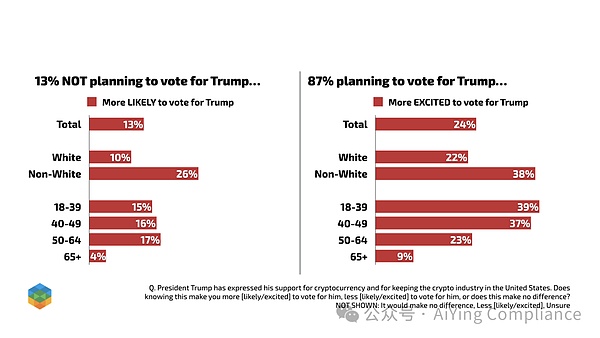
Point 6: Republicans are generally positive about cryptocurrencies
More Republicans believe that cryptocurrencies are generally positive for the economy (36%) than negative (30%)
Chart shows:
Overall, 40% of Republicans support, 31% oppose, and 28% are unsure.
Among men, 52% support, 28% oppose, and 20% are unsure.
Among women, 28% support, 35% oppose, and 37% are unsure.
Among college-educated Republicans, 49% support, 23% oppose, and 28% are unsure.
Among non-college-educated Republicans, 35% support, 36% oppose, and 28% are unsure.
After learning that China is developing a digital yuan, more Republicans support (40%) the U.S. government creating competing products (such as stablecoins) for domestic private companies to counter the digital yuan, while 31% oppose. Among them, men (52%) and college-educated Republicans (49%) have the highest support for this competitive path.
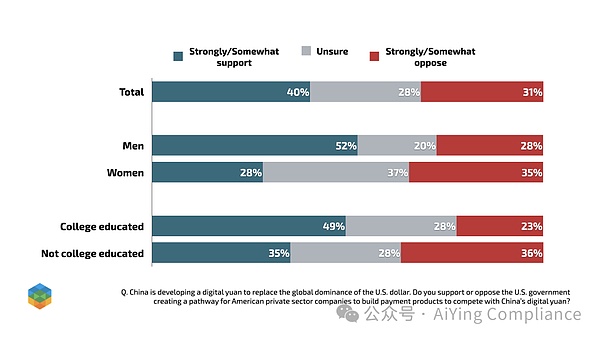
The above poll was conducted by Echelon Insights. The survey was conducted in English online across the United States from June 11 to 13, 2024. The sample was Republican voters among 1,025 possible voters, using a non-probability sampling method. The sample came from the Lucid sample exchange platform and was matched with the L2 voter file. 500 people were invited to participate in the web survey via SMS, and 525 people were surveyed by phone. The margin of error is 3.5%.
 JinseFinance
JinseFinance
 JinseFinance
JinseFinance JinseFinance
JinseFinance Clement
Clement Beincrypto
Beincrypto cryptopotato
cryptopotato Bitcoinist
Bitcoinist Bitcoinist
Bitcoinist Cointelegraph
Cointelegraph Cointelegraph
Cointelegraph Cointelegraph
Cointelegraph